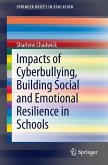This book provides a multidisciplinary view into how individuals and groups interact with the information environments that surround them. The book discusses how informational environments shape our daily lives, and how digital technologies can improve the ways in which people make use of informational environments. It presents the research and outcomes of a seven-year multidisciplinary research initiative, the Leibniz-WissenschaftsCampus Tübingen Informational Environments, jointly conducted by the Leibniz-Institut für Wissensmedien (IWM) and the Eberhard Karls Universität Tübingen. Book chapters from leading international experts in psychology, education, computer science, sociology, and medicine provide a multi-layered and multidisciplinary view on how the interplay between individuals and their informational environments unfolds.
Featured topics include: Managing obesity prevention using digital media.
Using digital media to assess and promote school teacher competence.
Informational environments and their effect on college student dropout.
Web-Platforms for game-based learning of orthography and numeracy.
How to design adaptive information environments to support self-regulated learning with multimedia. Informational Environments will be of interest to advanced undergraduate students, postgraduate students, researchers and practitioners in various fields of educational psychology, social psychology, education, computer science, communication science, sociology, and medicine.
Featured topics include: Managing obesity prevention using digital media.
Using digital media to assess and promote school teacher competence.
Informational environments and their effect on college student dropout.
Web-Platforms for game-based learning of orthography and numeracy.
How to design adaptive information environments to support self-regulated learning with multimedia. Informational Environments will be of interest to advanced undergraduate students, postgraduate students, researchers and practitioners in various fields of educational psychology, social psychology, education, computer science, communication science, sociology, and medicine.








